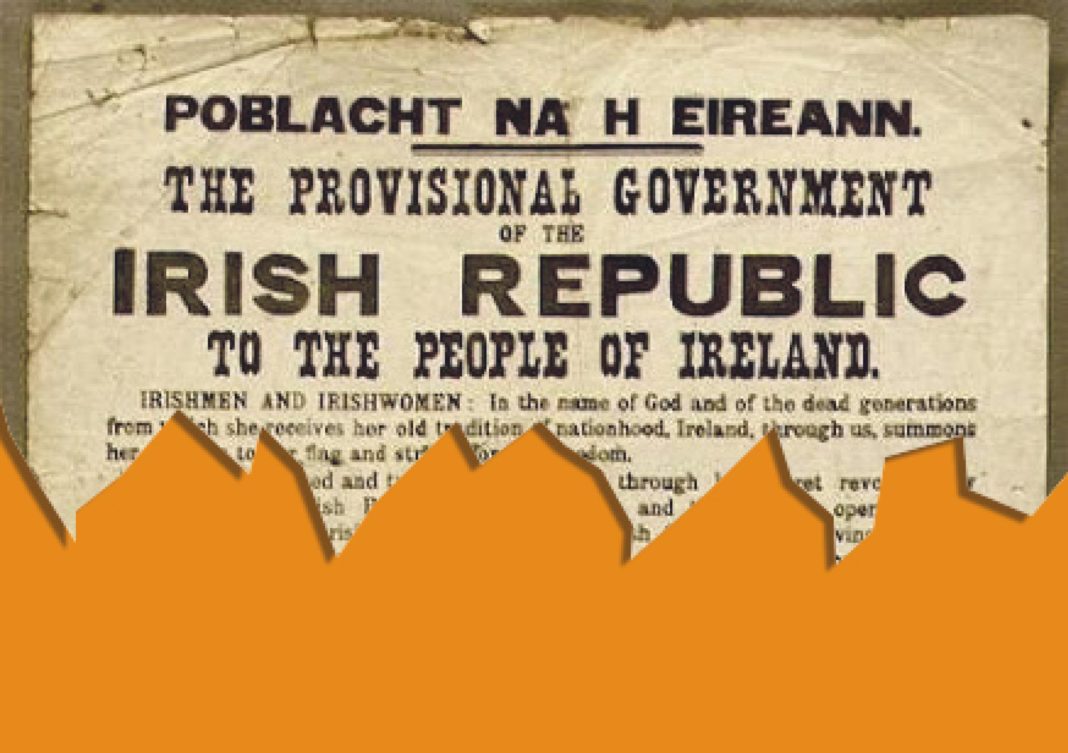May 19th-25th 1916
Although Mitchelstown and district was reported as having remained perfectly tranquil throughout the anxious period that had since passed, five men were detained and deported to Wakefield Detention Barracks. They were named as Messrs J. Hannigan, the two brothers Sullivan, W. Casey and P. Roche. There was no intimation as to when they would be released. The nationalists of Mitchelstown, while deploring the recent outbreak as a sad blow against Ireland and its best interests, were in favour of clemency to the misguided men, particularly those who had no direct connection with the Dublin outbreak. Resolutions to this effect had been passed by the Mitchelstown A.O.H. and the Mitchelstown Guardians.
At a specially convened meeting of Cappoquin National Volunteers, presided over by Mr Jeremiah Dempsey, the following resolution was passed: ‘That this meeting of the National Volunteers (Cappoquin Branch) deplore the mistaken methods of fanatic Sinn Feiners and deeply regret the innocent lives sacrificed in a more than mad attempt to free Ireland’.
At Fermoy Courthouse an inquest was held into the circumstances of the death of 67 year old Mr Daniel O’Leary, residing at Ballylag, near Mitchelstown, who died in Fermoy District Hospital on May 21st. The deceased had been removed to hospital after being found sleeping out and complaining of pains in his legs. He was admitted at 7.30pm and died at 9.30pm the same evening. Dr T.P. Magnier said death was due to heart failure consequent on exposure and the life which was led. The coroner said there was no blame attached to anyone in connection with the death. The jury found a verdict in accordance with the medical testimony.
It was confirmed that John J. Walsh had been killed in France on May 1st. He was a grandson of the late Patrick Roche, Fermoy. M. Greely, Lismore from the Leinster Regiment was wounded. Meanwhile, Mr J. G. Skinner, solicitor, Mitchelstown received a letter from Egypt written by Mr Daniel Lahiffe, also from the town, who was a clerk in his office that had volunteered for active service. The soldier, who had a wife and six children, had previously fought at Gallipoli and described meeting a Glanworth man named O’Mahony who was also soldiering. He wrote that the occasions on which he had escaped extermination were numerous.
A bull ran amuck at Kilfinane and knocked the owner, Mr W. Fitzgerald, who received some serious injuries and would have fared much worse, were it not that a number of people came to his assistance. Some exciting scenes and narrow escapes were witnessed before the animal was got under control.
Mr J. Victor Raffles, who had been organist at the Protestant Cathedral, Lismore, for the past few years, secured the important position of organist at Kilkenny Cathedral and would shortly leave to take up duty there. No more popular gentleman had been attached to the Lismore choir than Mr Raffles.








